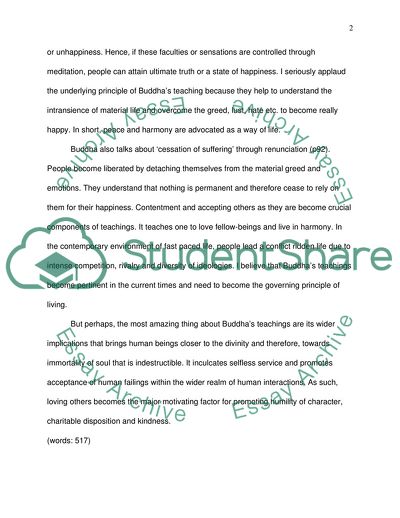What the Buddha Taught - Buddha's Spirit of Tolerance and Understandin Book Report/Review. https://studentshare.org/philosophy/1794319-what-the-buddha-taught-pp-1-44-92-94-125-136
What the Buddha Taught - Buddha'S Spirit of Tolerance and Understandin Book Report/Review. https://studentshare.org/philosophy/1794319-what-the-buddha-taught-pp-1-44-92-94-125-136.


